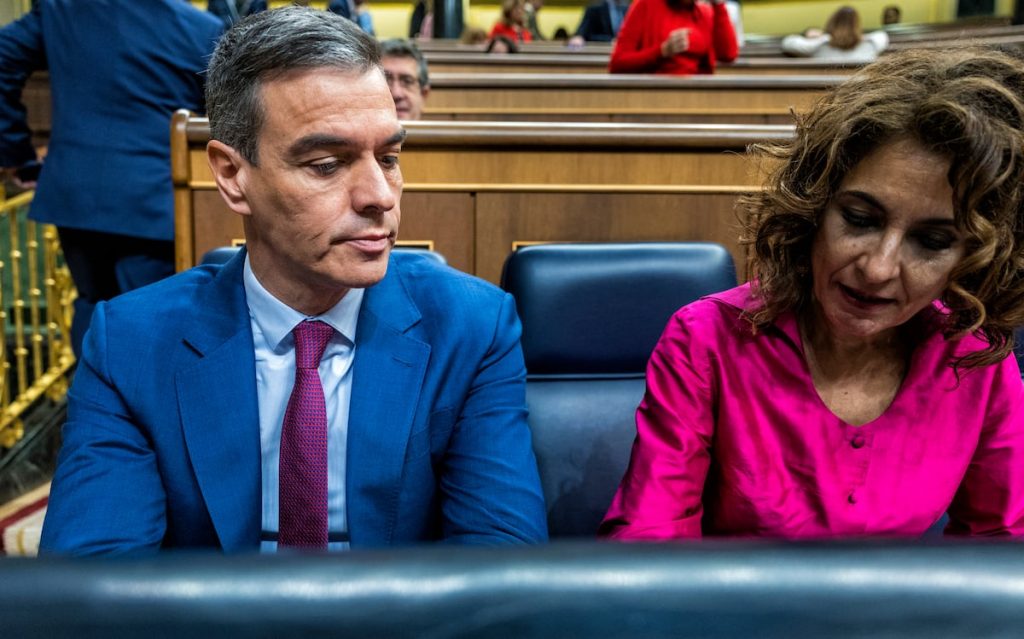President Pedro Sánchez has announced that he is considering resigning from his position as Prime Minister of Spain due to attacks against his wife, Begoña Gómez. This decision has sparked a flurry of reactions on social media, with supporters seeing it as another strategic move by Sánchez, who has a history of making bold decisions that work in his favor. However, there are also skeptics who believe that there is more to the story and that Sánchez may be hiding something. Regardless, the announcement has generated a mix of political analysis, strategic evaluation, and humorous commentary on Twitter.
One group of supporters sees Sánchez’s decision as a way for him to stand up against media attacks, particularly those coming from Manos Limpias, a controversial union known for making baseless legal complaints. They view Sánchez’s move as a calculated response to the ongoing negative press coverage and believe that it could ultimately work in his favor. However, there are also critics who are skeptical of Sánchez’s intentions and suspect that there may be ulterior motives behind his decision to step back from his role as Prime Minister. These skeptics question whether Sánchez is truly acting out of concern for his wife or if there is something else driving his actions.
In the midst of this controversy, some Twitter users have found humor in the situation, particularly in a heartfelt statement from Sánchez about his love for his wife. This expression of love has been both praised and mocked on social media, with some users drawing comparisons to famous romantic scenes in movies or literature. Others have used the statement as a basis for creating humorous memes and jokes, turning a serious political issue into a source of entertainment and amusement for online audiences. Despite the seriousness of the situation, humor has found a way to permeate the conversation surrounding Sánchez’s decision.
As is often the case in times of upheaval, social media users have taken to Twitter to dig up old tweets from Sánchez that seem to mirror the current situation. These tweets, often lighthearted or innocuous, provide a glimpse into Sánchez’s past and serve as a reminder of his history on social media. By resurfacing these tweets, users are able to draw parallels between Sánchez’s previous statements and his current predicament, highlighting the irony or humor in the situation. This practice of referencing old tweets as a way of commenting on present events is a common practice on social media, allowing users to reflect on how individuals and situations change over time.
In the aftermath of Sánchez’s announcement, social media has become a battleground of opinions, theories, and jokes about the situation. With a mixture of supporters, skeptics, and comedians weighing in on the debate, the conversation on Twitter has become a microcosm of the larger political and social landscape in Spain. While the outcome of Sánchez’s decision remains uncertain, what is clear is that social media plays a significant role in shaping public opinion and discourse on important political issues. As Sánchez deliberates on his future as Prime Minister, the online world continues to buzz with speculation, analysis, and humor, reflecting the diverse perspectives and tones of the broader conversation. Ultimately, the outcome of this online discourse may have a tangible impact on the political landscape in Spain and the future of Sánchez’s leadership.


